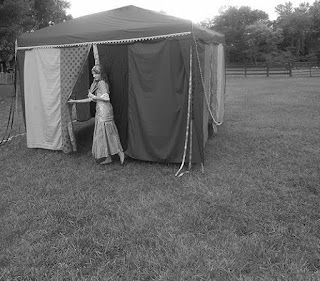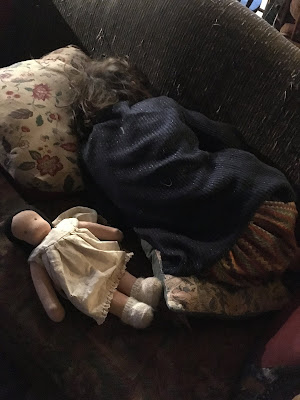Regina's Reading Table: Intelligent Disobedience
This is an important book.
I met the author, Ira Chaleff, at a local author event shortly after he had moved into our area. Ira is a leader in a necessary area of business ethics: follower-ship. We always hear about the need for leadership, and the training of good leaders, but very few people think of the importance of good followers, or of being a good follower.
I consider myself a student of human nature by virtue of my primary occupation of fiction writing and editing. In order to create fascinating characters, one must be fascinated by humanity. An important part of studying humanity is studying how we relate in group settings, and that has led me to have an abiding interest in sociology. So when I first heard Ira discourse on the importance of follower-leader interactions I was intrigued, and I was excited to get a copy of his landmark book, The Courageous Follower. I knew he was working on a new book, and I knew I would read it, but I was unprepared for how engaging, provoking, and inspiring this book, Intelligent Disobedience: Doing Right When What You're Told Is Wrong, would be.
The term "Intelligent Disobedience" is used in guide-dog training: dogs who are trained companions to disabled people. When I was a little girl, we had a family friend, Bertha, who was blind, and whose constant companion was a black lab dog, a patient, gentle animal, who was always at her side, listening for Bertha's commands, but wise enough to disobey when needed. Bertha had told us how the dog was not only a guide, but a protector as well: he would stop her from walking into a busy street, or from hitting her head on a low obstacle. I don't know if I ever saw the dog's "intelligent disobedience" in action, but it impressed me profoundly that this dog was not only smart enough to obey, but smart enough to disobey.
How does this play out in human relationships? Most of us spend our social lives as part of some kind of hierarchy, however informal: we are employed, we are church members, we are club members, political party members: in our personal lives, we are students of teachers, children of parents, and so on. Part of being an adult is learning to be a good team player, to be able to take on a job or responsibility, to be able to be accountable. There's a lot of conscious and unconscious pressure, especially at school and at work, to learn to obey, to be obedient. While we Americans always pay lip service to the rebel, especially in our entertainment, most of us learn that rebelling in most situations is unproductive and even destructive. When we experience a conflict, especially in personal relationships, we might feel like we have only two choices: obey without question, or rebel and lose everything.
But how often do we learn how to disobey intelligently?
While Chaleff praises thoughtful civil disobedience, he makes it clear that intelligent disobedience is different. It's a wise way of working within the system to preserve the values the institution is based on while opposing a specific command or practice that contradicts those values.
The most riveting part of the book was the true life stories. The young emergency room nurse who was directed to give a patient a medication that she knew was dangerous. The lieutenant who was asked to cover up a military base violation. The teacher who found a fellow teacher had duct-taped a student to a chair. The McDonald's manager who was told to strip-search an employee. Sometimes inspiring and sometimes disturbing, these stories act as templates for how to act--and how not to act--in difficult situations.
Most of us have heard of the famous Milgram experiment in the 1960s where participants were asked to administer a possibly dangerous electric shock to test participants. Nearly 75% of participants did as they were told, even when they knew it was wrong. Chaleff revisits this experiment to find out something more important: under what conditions did participants disobey the orders? What factors encouraged more intelligent disobedience?
As in his other book, the highly-recommended The Courageous Follower, Chaleff acknowledges the role of belief in higher values and authority (ie: religion) to help a person wisely obey an errant authority. His ability to depict the nuances of ethical behavior is, as in the other book, spot on, making this book an important resource for believers who find themselves in the position of management or employee, in institutions both religious and secular. In a world where business ethics books either neglect or dismiss the role of religious belief, this inclusion is a breath of fresh air.
He also issues a call for educators to examine how they can train their students not just to learn to obey, but how to discern when disobedience is the higher call. Those who are striving to recover true liberal education (education that liberates) in schools should read this book. Montessori educators and Responsive Classroom theorists would find affirmation in some of their approaches. Classical educators and off-the-beaten-path educators and homeschoolers will find a book they will want to read aloud to their teenagers and absorb into their curriculum. At least, that's what I experienced!
Intelligent Disobedience is a must-read for anyone who recognizes the paradoxical quality of loyalty: that sometimes the best thing you can do for the authorities in your life is to oppose them. Wisely. Creatively. And loyally.
Read it to your teenagers. Read it to your fellow teachers. Share it with your organization.
This is an important book.



Comments